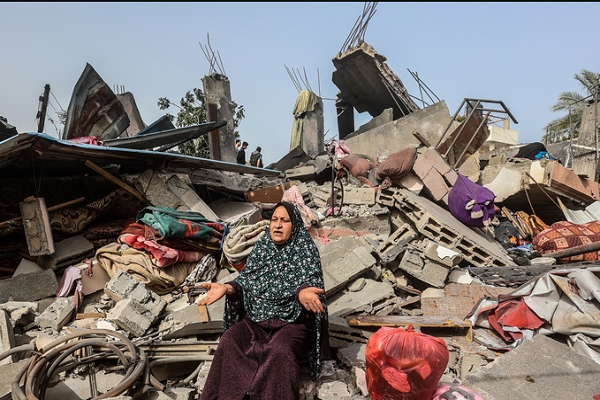‘Ramadan Will Never Be the Same for Palestinians’

“One thing is certain, Ramadan will never be the same,” wrote Ahmad Ibsais, a first generation Palestinian American and law student.
In an article published by Al Jazeera, he added that this Ramadan is one that no Palestinian will ever forget.
Following is his article:
It was in the streets of Nablus, el-Bireh, and – whenever I was able to sneak past illegal checkpoints – those of occupied East Jerusalem (al-Quds), that I first experienced the purest form of Ramadan and recognized the true meaning and purpose of my religion.
It was there that I realized Ramadan is much more than just fasting and prayer, that it is a remembrance of the strength of our faith, and a celebration of the resilience of our people.
In those streets, occupied and under constant threat of aggression, but defiantly full of hope and children’s laughter, I came to appreciate the unique beauty of the sound of Adhan and the calming wisdom of being Muslim.
This Ramadan, I am not at home, in Palestine. And as I break my fast at every sundown with the images and sounds of my homeland’s ongoing destruction playing out in my mind, I am devastated to think what Ramadan now looks and feels like for my beloved people.
Read More:
For those in Gaza, who survived more than five months of genocide, there is no food for Iftar. Israel is still blocking aid from reaching the most desperate, and people are cooking grass to have something, anything, to break their fast with. Babies and children are all malnourished, and dozens have already died from lack of food and clean water. Everyone in the besieged enclave lost someone, but they are not even provided with the time and space to breathe, mourn and process their trauma. There is no mosque left undamaged, and no safe place for collective prayer. Indeed, people of Gaza are still under constant bombardment. Even those who tried to find refuge in Rafah, that last so-called “safe zone” in the besieged enclave, are still being threatened with a ground invasion – an invasion that would undoubtedly kill and maim thousands more innocents.
Sure, Ramadan has not been carefree for the people of Gaza for years – due to Israel’s relentless blockade, many parents were going without food in this holiest of months to feed their children long before the beginning of this genocide. Yet death and destruction has never been this close, and fear about the future this acute in this once beautiful land, during any Ramadan, ever.
For those in the West Bank, Ramadan is nothing like it was before either.
Sure, Ramadan was never a straightforward affair in the occupied territory. It always involved navigating illegal checkpoints, enduring harassment from occupation soldiers and resisting provocations. But this year, it is much, much worse. Palestinians in the West Bank are not only agonizing over the genocide of their brothers and sisters in Gaza, but also trying to survive relentless attacks from settlers, police and soldiers. They wonder who among them will be the next to be arbitrarily arrested, displaced or assaulted – they wonder whether they and their loved ones will live to see another Ramadan.
And for those in the diaspora, we are left practicing our faith with an undying guilt that I do not have the capacity to describe neither in English nor in Arabic. How should I break my fast when so many of my people haven’t properly eaten in months? Pray in a mosque while my people pray on rubble? Religiously, I know I must, but that does answer the questions that make my heart bleed.
Read More:
Ramadan after Ramadan, the Palestinian people have been tested. But the Palestinian spirit will outlive the tyranny of occupation. As I watch Gazans perform Friday prayer amidst the rubble of their society, I am reminded of what steadfastness looks like: that you can destroy one’s home or mosque, but never one’s Iman (faith). I often imagine what Ramadan would look like if Palestine were never occupied. Perhaps I would be breaking fast with the children of Gaza who are no longer here. Perhaps I would be making knafeh, my speciality, in the eastern mountains of Nablus, on land that was stolen from my grandfather, who never got to see freedom.
One thing is certain, Ramadan will never be the same. Every year from now on, my prayers will not be for myself but for my martyred people who are no longer able to pray for themselves. I will be praying to absolve my guilt for not being able to do enough to save them. May God’s mercy be upon the souls of our martyrs.
Source: Al Jazeera



